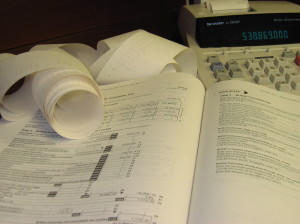 Now is the time to start your year end tax planning. This is an important time in a tax strategy because once the year has ended, some tax opportunities are lost forever.
Now is the time to start your year end tax planning. This is an important time in a tax strategy because once the year has ended, some tax opportunities are lost forever.
Here is a checklist to keep your year end planning on track.
#1 Meet with your tax advisor.
Hopefully you are meeting with your tax advisor throughout the year! This time of year you want to have a discussion that is focused on year-end tax planning.
#2 Have your annual meeting and create your annual meeting minutes.
Meeting minutes are an ideal place to document the activity in your tax strategy. All the items on this list should make their way into your annual meeting. Make your annual meeting and minutes part of your year-end planning.
#3 Add an entity
Entities are one of the greatest tools to reduce taxes. Knowing the right time to add an entity and knowing the right entity to add can save as much as $10,000 per year in taxes. However, the entity needs to be in place in order for the tax savings to occur.
#4 Change how an entity is taxed.
When I create a tax strategy with a client, it’s not uncommon for an entity to be created knowing that once it reaches a certain level of income, an election will be made to change how the entity is taxed. Missing this election or not making it at the ideal time can be a very costly tax mistake.
#5 Make sure your salary is on track.
Optimizing how you take money out of your entity is an effective way to reduce your taxes. Now is the time to make sure the amount of salary you receive from your entity is on track. If changes need to be made, there is still time left in the year to make those changes without having to do one big adjustment at the end of the year.
#6 Make sure your distributions are on track.
Just like salary, distributions play a huge role in reducing your taxes. You’ll want to make sure your distributions are in line to support your tax strategy.
#7 Make sure your loan and interest payments are on track.
It’s very common to make or take a loan to or from your entity, or to have loans between your entities. Make sure the loan and interest payments are paid in accordance with the loan document.
If you don’t have loan documents, you’ll definitely want to get those in place.
#8 Check the documentation for your deductions.
Documentation is a great way to successfully get through an audit. It is also a great way to increase your tax deductions because proper documentation leaves less room for deductions to get missed.
This includes documentation for travel, meals & entertainment, home office and vehicle.
#9 Check your log for your vehicle.
Your mileage log documents how many business miles versus total miles you have year-to-date. It’s an important piece of documentation to properly support your vehicle deductions.
#10 Check your log for your real estate hours.
If you claim real estate professional status in the U.S., your real estate hours need to be documented. A log detailing the date, times and activity is the best way to do this.
#11 Get reimbursed for your business expenses.
If you have paid for any business expenses personally (this includes your own business) and have not been reimbursed, it’s time to submit that expense report and get paid. These expenses are easy to forget about and that means the tax deduction could get missed.
And, if your business doesn’t have a policy in place to reimburse you for these expenses, it’s time to get that in place too.
#12 Get your bookkeeping current.
Bookkeeping impacts every item on this list. This is why it is so important to make sure your bookkeeping is current before the end of the year is here – current means it is done through the end of last month, or last quarter.
If you want to learn more about how to take advantage of these tax strategies, call us for an appointment to get started today!